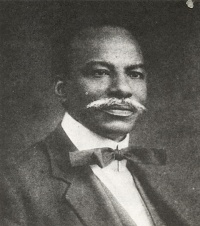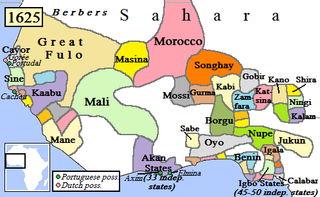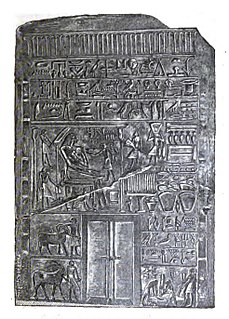
Politics of Samoa takes place in a framework of a parliamentary representative democratic state whereby the Prime Minister of Samoa is the head of government. Existing alongside the country's Western styled political system is the fa'amatai chiefly system of socio-political governance and organisation, central to understanding Samoa's political system.
Ratu is an Austronesian title used by male Fijians of chiefly rank. An equivalent title, Adi, is used by females of chiefly rank. In the Malay language, the title Ratu is also the traditional honorific title to refer to the ruling king or queen in Javanese culture. Thus in Java, a royal palace is called "keraton", constructed from the circumfix ke- -an and Ratu, to describe the residence of the Ratu.
A minister is a politician who heads a ministry, making and implementing decisions on policies in conjunction with the other ministers. In some jurisdictions the head of government is also a minister and is designated the ‘prime minister’, ‘premier’, ‘chief minister’, ‘chancellor’ or other title.
A Higher National Diploma (HND) is an academic higher education qualification in the United Kingdom and various other countries. They were first introduced in England and Wales in 1920 alongside the Ordinary National Diploma and the Higher National Certificate. A qualification of the same title is also offered in Nigeria, Argentina, Brunei, India, Malta, Nigeria, Ghana, Kenya and some other countries with British ties.

The National Assembly of the Federal Republic of Nigeria is a bicameral legislature established under section 4 of the Nigerian Constitution. It consists of a Senate with 109 members and a 360-member House of Representatives. The body, modeled after the federal Congress of the United States, is supposed to guarantee equal representation with 3 Senators to each 36 states irrespective of size in the Senate plus 1 senator representing the Federal Capital Territory, Nigeria and single-member district, plurality voting in the House of Representatives. The National Assembly, like many other organs of the Nigerian federal government, is based in Abuja, in the FCT, Abuja.

Olayinka Herbert Samuel Heelas Badmus Macaulay was a Nigerian nationalist, politician, surveyor, engineer, architect, journalist, and musician and is considered by many Nigerians as the founder of Nigerian nationalism.

Most Beautiful Girl in Nigeria – also abbreviated as MBGN – is a pageant organised by Silverbird Group with the main purpose of sending representatives to international competitions. Originally known as Miss Universe Nigeria, it was renamed Most Beautiful Girl in Nigeria after news publishers Daily Times lost their license to send delegates from rival contest Miss Nigeria to Miss World and Miss Universe.
A tribal chief or chieftain is the leader of a tribal society or chiefdom.

Nigeria, the most populous African country, is divided between adherents of Islam, Christianity and traditional religion quite similar to polytheism though the ratio is uncertain. The majority of Nigerian Muslims are either non-denominational Muslims or Sunni and are concentrated in mostly the northern region of the country with some Christian population, the same way Christians dominate in the south with some Muslim population. Most Nigerian Christians are Protestant though about a quarter are Catholic.

Ahmadu Ibrahim Bello, Sardauna of Sokoto, knighted as SirAhmadu Bello, was a conservative Nigerian statesman who masterminded Northern Nigeria through the independence of Nigeria in 1960 and served as its first and only premier from 1954 until his assassination in 1966, in which capacity he dominated national affairs for over a decade.
Gagaja[ŋaŋatʃa] is a Rotuman word denoting the position of "Chief" or "Lord". This could be a formal chiefly position in one of the seven districts or a village chief as well as to anyone else, such as the Chairman of the Rotuma Island Council to whom respect and deference is owed based on their own skills and attributes. Unlike in many other Pacific cultures, the official chiefly positions are not allocated according to any strict primogeniture, but rather are elected from all eligible males within certain kạinaga to whom the chiefly title belongs.
Oba means ruler in the Yoruba and Bini languages of West Africa. Kings in Yorubaland, a region which is in the modern republics of Benin, Nigeria and Togo, make use of it as a pre-nominal honorific. Examples of Yoruba bearers include Oba Ogunwusi of Ile-Ife, Oba Adeyemi of Oyo, and Oba Akiolu of Lagos. An example of a Bini bearer is Oba Ewuare II of Benin.
The structure of social class in Cambodia has altered several times throughout its history. The traditional hereditary elites were marginalised in the 1970s, when military leaders gained prominence, before the Khmer Rouge attempted to dramatically eliminate existing class structures in the late 1970s. Since the emergence of peace in the early 1990s social inequality has increased in Cambodia.

Fa'amatai is the chiefly system of Samoa, central to the organization of Samoan society. It is the traditional indigenous form of governance in the both Samoas, comprising American Samoa and the Independent State of Samoa. The term comprises the prefix fa'a and the word matai.

Nigerian traditional rulers often derive their titles from the rulers of independent states or communities that existed before the formation of modern Nigeria. Although they do not have formal political power, in many cases they continue to command respect from their people and have considerable influence.

Visitors to Nigeria require a visa unless they come from one of the visa exempt countries. All visitors must hold a passport valid for 6 months.

Iry-pat was an ancient Egyptian ranking title, that is a title announcing a high position in the hierarchy of the country. Iry-pat was indeed the highest ranking title at the royal court, and only the most important officials could bear this title. The title is already attested in the First Dynasty: one of the first holders was Merka, official under king Qa'a.
Aloysius Orjinta is a Nigerian Roman Catholic priest and senior lecturer in the University of Nigeria, Nsukka. He was ordained a priest in 1990. A holder of two doctorates in French Studies and in German Studies and Political Science, with specialty in International Relations, he is a former Head of Department of Foreign Languages and Literary Studies in the university. He has studied and worked in Italy, Germany, France, and in Nigeria where he currently lives. He attended Urban University, Rome, the University of Saarland, Ludwig Maximilian University of Munich, University of Grenoble, and the University of Ibadan in addition to his current workplace where he was an undergraduate. A researcher and critic, his academic publications and interest cover religious writings on Christianity and Islam, gender and feminist studies, political discourse, and Euro-African literature with emphasis on German, Francophone and Anglophone works. He is a member of, and has served on, the managing boards of many organisations in Nigeria and outside the country, most times as the head. Currently, he is the editor of Interdisciplinary Academic Essays, Elite University Journal, Munchen, Germany, as well as of the Nsukka Journal of Humanities, Nsukka, Nigeria. He is also an editorial board member and reviewer of the Asian Journal of Social Sciences and Humanities, Hong Kong.
A peerage is a legal system historically comprising various hereditary titles in a number of countries, and composed of assorted noble ranks.

The Bourgeoisie of Nigeria is the bourgeoisie that is native to Nigeria. It has gone through extensive changes over the duration of its long history.










